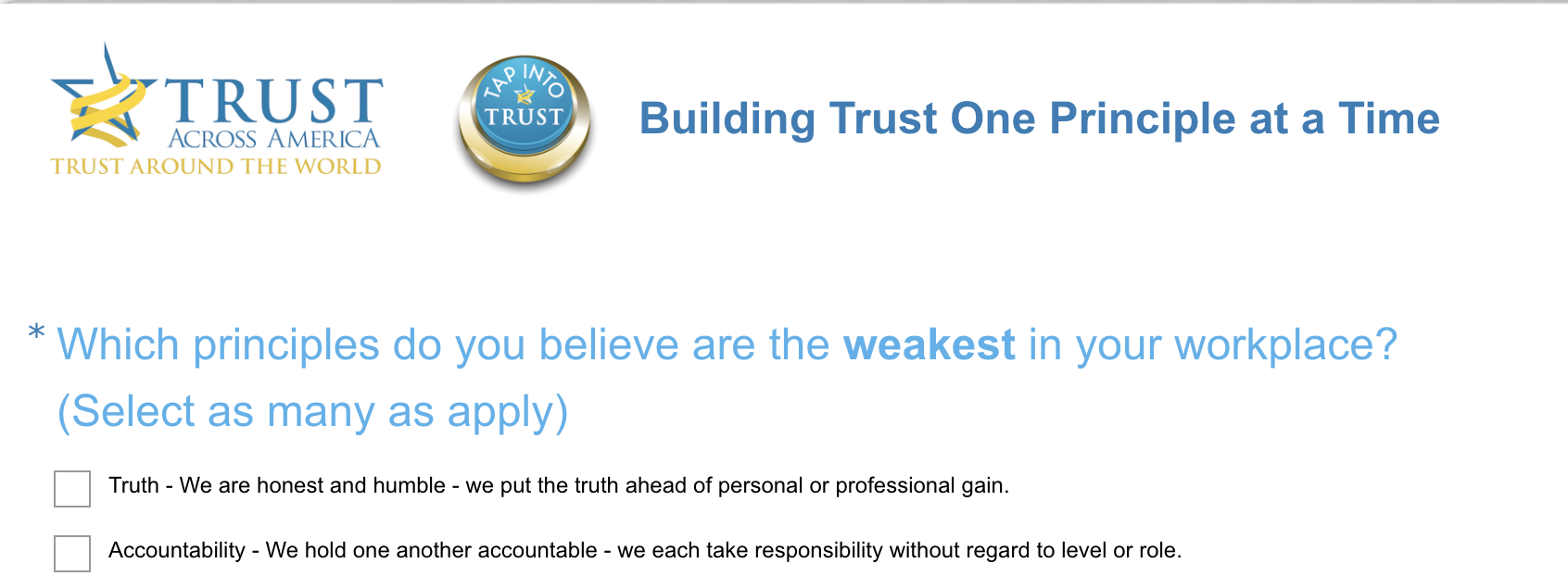In the words of Abraham Lincoln…. You can fool all the people some of the time, and some of the people all the time, but you cannot fool all the people all the time.
The same applies to trust. These commonly taken shortcuts to trust may fool some of your stakeholders, but won’t fool them all, and over time they may come back to haunt you.
- Narrowly defining trust in a way that suits the trustee. Brand loyalty, check the box sustainability, philanthropy, “feel good” CSR, blockchain solutions and data security are not trust. Neither are reputation, loyalty or transparency.
- Delegating trust to a motivational speaker instead of a subject matter expert.
- Paying for a “great workplace” award.
- Beefing up the legal and compliance staff.
- Making trust a PR campaign based on “talk” rather than action.
Do we really need more proof that shortcuts to elevating workplace trust do not work?
Take a look at the following data:
Trust within an organization is essential to its success. But “Global Generations 3.0” research, released by Ernst & Young, showed trust isn’t a given. The survey of nearly 10,000 workers ages 19 to 68 in eight countries revealed that just 46% of employees placed “a great deal of trust” in their employer, and only 49% placed “a great deal of trust” in their manager or colleagues. June 2016
According to a new global study by BBMG and GlobeScan, “Brand Purpose in Divided Times,” net trust in global companies to act in the best interest of society is negative (-2). And for the first time since 2009, more consumers say they have punished companies for their behavior (28%) rather than rewarded them (26%), and the number of those who are punishing brands is up by 9 percentage points since 2013.
According to 2018 polling by the Public Affairs Council, only 7 percent of Americans believe that major company CEOs have high ethical standards, and only 9 percent have a very favorable opinion of major companies. Only 42 percent of Americans trust major companies to behave ethically, down from 47 percent last year.
Gallup’s 2017 reports: A highly engaged workforce means the difference between a company that outperforms its competitors and one that fails to grow. And according to their recent State of the Global Workplace report, 85% of employees are not engaged or actively disengaged at work. The economic consequences of this global “norm” are approximately $7 trillion in lost productivity. Eighteen percent are actively disengaged (up from 2015) in their work and workplace, while 67% are “not engaged.
Building a “principled culture” of high trust and ethics is not difficult. It simply requires leadership buy-in, and a bit of vulnerability. High priced quick fixes might fool some of the people in the short-term, but in the long-term sustainable businesses are built on trust from the inside out, not the outside in.
In our recently launched one minute (free and totally anonymous) diagnostic survey called “Building Trust One Principle at a Time,” we ask which of twelve universal trust principles (TAP) are weakest in your organization. At the end, respondents will see how their workplace compares to all others. Bringing this tool “in house” will provide enlightened leaders, teams and organizations with a baseline trust “temperature” from which to build long-term business health. Just tap on the Take our Quiz button or go direct to the Survey.
If trust is the “new currency,” as some have recently claimed, the challenge will be to “get it right” by avoiding the shortcuts and embracing the solutions.
Barbara Brooks Kimmel is an award-winning communications executive and the CEO and Cofounder of Trust Across America-Trust Around the World whose mission is to help organizations build trust. Barbara has consulted with many Fortune 500 CEOs and their firms, and also runs the world’s largest global Trust Alliance . She is the editor of the award-winning TRUST INC. book series and TRUST! Magazine. Barbara holds a BA in International Affairs and an MBA.
Copyright 2019, Next Decade, Inc.



Recent Comments